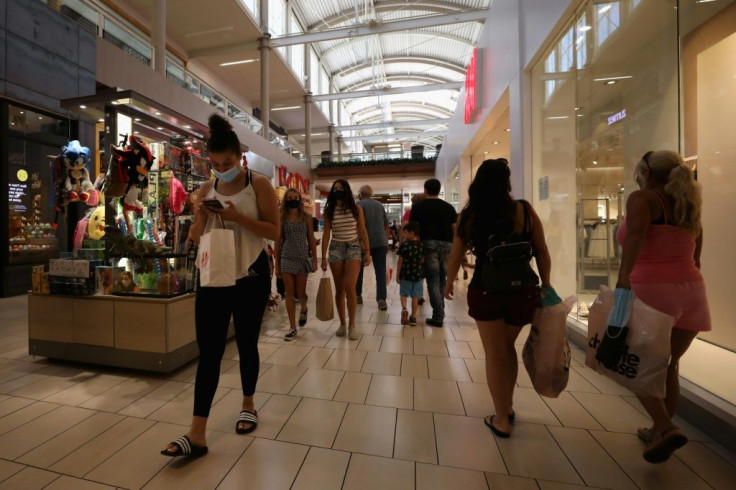Coronavirus Economy: Consumer Spending Increases In June But Personal Income Is Falling

KEY POINTS
- Consumer spending increased $737.7 billion in June or 5.6% but analysts said further spending could be tempered by the resurgence of coronavirus
- Personal income fell $222.8 billion or 1.1% as some government pandemic programs expired
- Analysts said further recovery likely will be dependent on whether the trajectory of coronavirus infections can be reversed
The Commerce Department on Friday reported consumer spending jumped 5.6% in June, but the resurgence of the coronavirus may prompt a pullback that could slow the recovery from spring business shutdowns. Household income fell 1.1%.
It was the second straight month Commerce reported an increase following the sharp decline prompted by the economy’s virtual shutdown.
The report follows Thursday’s statistics showing the economy contracted a record 9.5% in the second quarter. Consumer spending makes up two-thirds of economic demand in the U.S.
The Bureau of Economic Analysis reported June spending increased $737.7 billion, with increases in both goods and services. The biggest increases were recorded in clothing and footwear, healthcare, food services and accommodations. Within healthcare, both hospital and outpatient services were up.
Personal income fell by $222.8 billion last month, with disposable income off $255.3 billion.
BEA said the drop in personal income was attributable to a decrease in social benefits doled out as part of the CARES Act but were offset partially by pandemic unemployment compensation. The extra $600 a week in jobless payments expired Friday, and Senate Republicans went home for the weekend without agreeing on replacement legislation.
Analysts said further recovery likely will be dependent on whether the trajectory of coronavirus infections can be reversed. The virus has claimed more than 152,000 American lives, and currently is killing people at a rate of about 1,400 a day.
“It appears that some elements of the economic rebound didn’t incorporate sufficient measures to reduce the spread of COVID-19 into new areas, and that’s creating a second, more localized, episode of customers avoiding shopping and dining,” the Mercatus Center at George Mason University said in an email to International Business Times.
“The outlook for the economy will be very much dependent on whether the infection rates in the U.S. come down reasonably quickly, and whether the confidence can be restored,” Madhavi Bokil, a vice president at Moody’s Investors Service, told the Wall Street Journal.
© Copyright IBTimes 2025. All rights reserved.






















